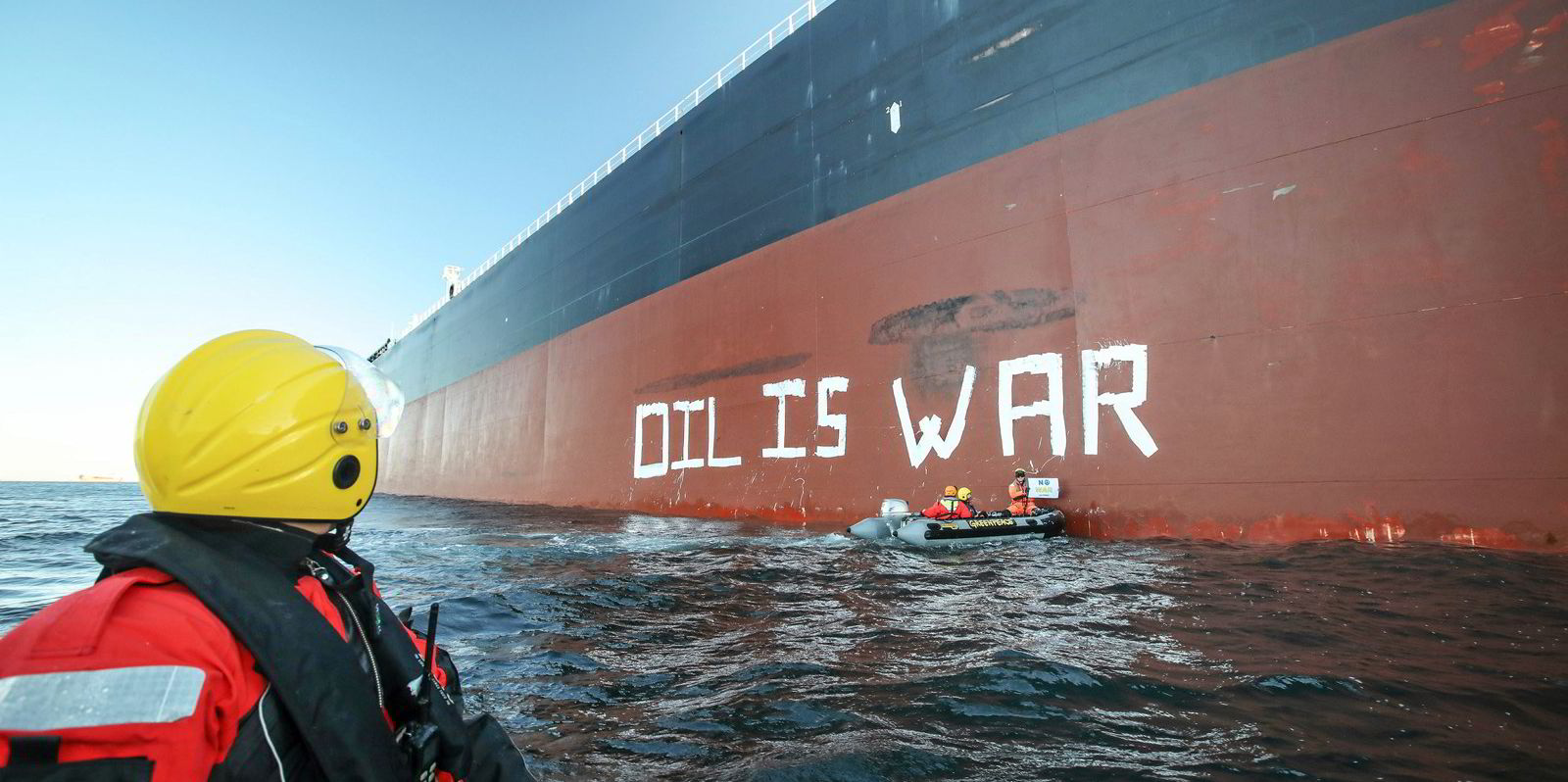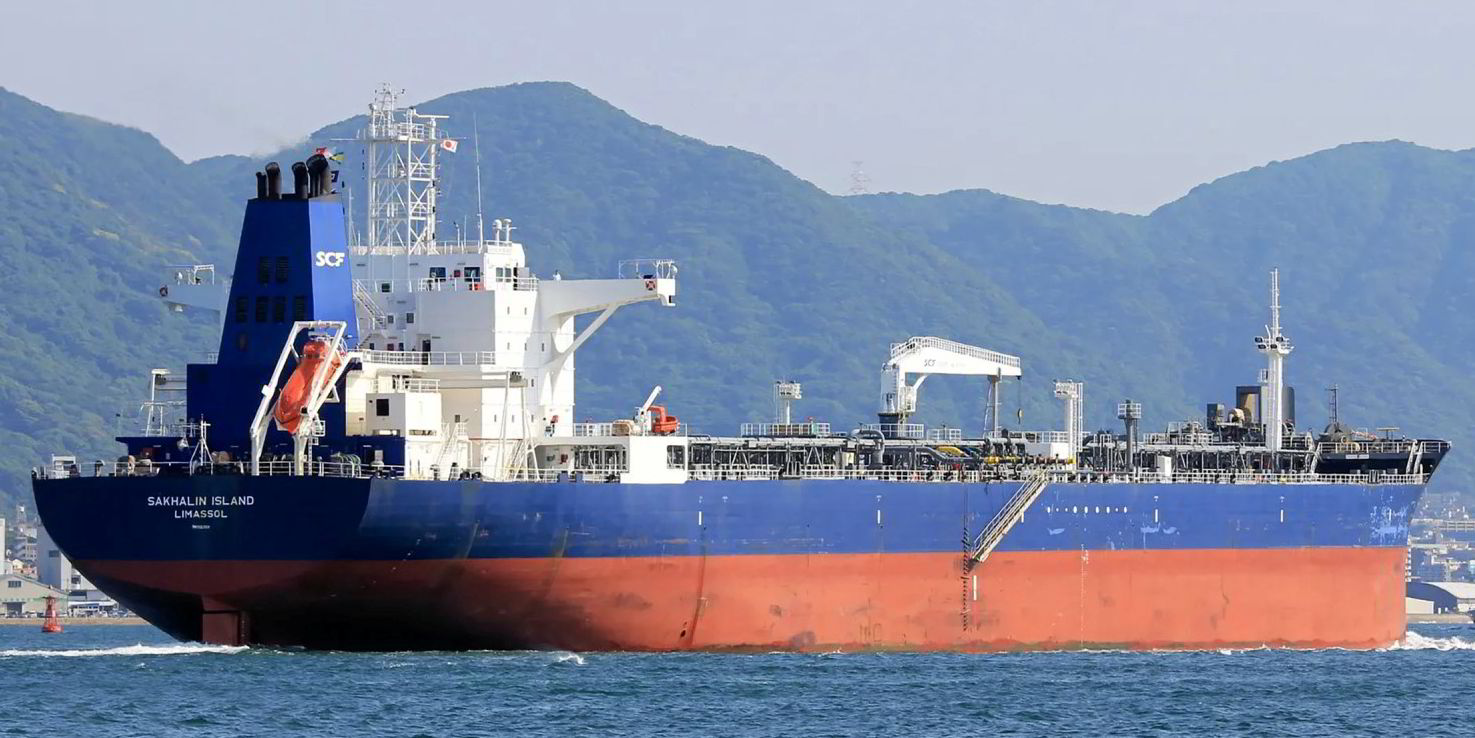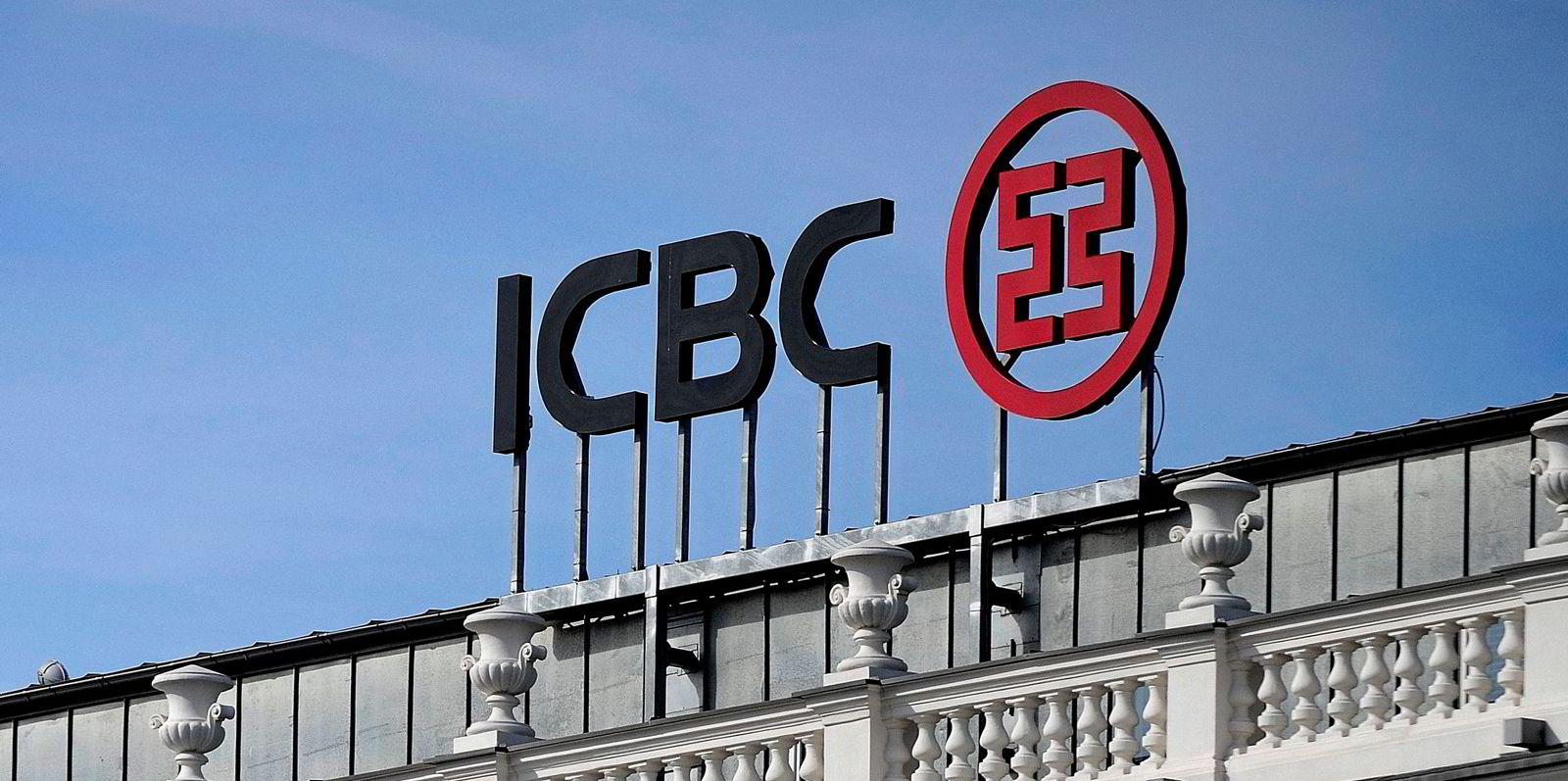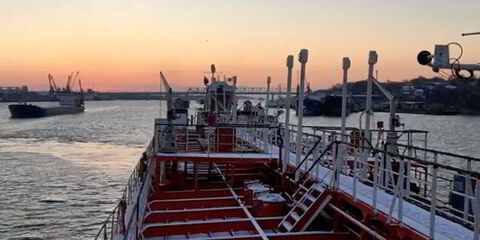A Black Sea monitoring group has claimed a total of 94 tankers brought Russian oil into European Union waters in defiance of the bloc’s import ban.
The Euromaidan website cited the Ukraine-based Black Sea Institute of Strategic Studies and BlackSea News as saying the vessels imported 82.9m barrels from Black Sea ports between 5 December and 29 February.
Of this, 68% was transported to Greece’s Laconian Gulf for transshipment.
But TradeWinds is told these transshipment voyages and operations take place in international waters and do not breach the ban. Nor is this oil sold into the EU.
The report claimed the rest of the oil was directly exported to EU ports against a background of poor sanctions management, however.
Many of the tankers are owned by companies from the EU.
The data shows that 14.4% of the oil goes to Italian ports, largely in Sicily.
The institute claims Spanish ports have also received Russian oil as has Rotterdam in the Netherlands. Croatia, Poland and Slovenia are also on the list.
A Rotterdam port spokesman told TradeWinds the port does not select which ship is allowed to enter.
“This is done by the customs and the coast guard. We only carry out that selection and if we have any doubts about contaminated cargo, we will contact them,” he added.
A European Commission spokesman told TradeWinds that member states are responsible for the implementation of EU sanctions.
“As regards the assessment of individual cases of circumvention, the primary responsibility rests with member states, through their national competent authorities,” he added.
“The Commission is working closely with them on addressing circumvention risks by, among others, providing guidance and legal clarity as appropriate,” the spokesman said.
The report did not name any vessels but said 52 are owned by Greek companies.
Turkish owners account for 11 more, with Russia owning eight through companies in Dubai and India.
Frustration in Ukraine
The institute said the Black Sea remains the “main Russian export route, given the EU’s poor management over implementing its own sanctions”.
The report attributes Ukraine’s recent drone attacks on Russian refineries to frustration with weak sanctions against the Vladimir Putin regime.
Since the beginning of the year, at least 10 large plants have been damaged.
Russia also suffered a blow to its export plans when Indian refiners this week refused to accept any more cargoes on tankers controlled by sanctioned Russian state shipowner Sovcomflot.





